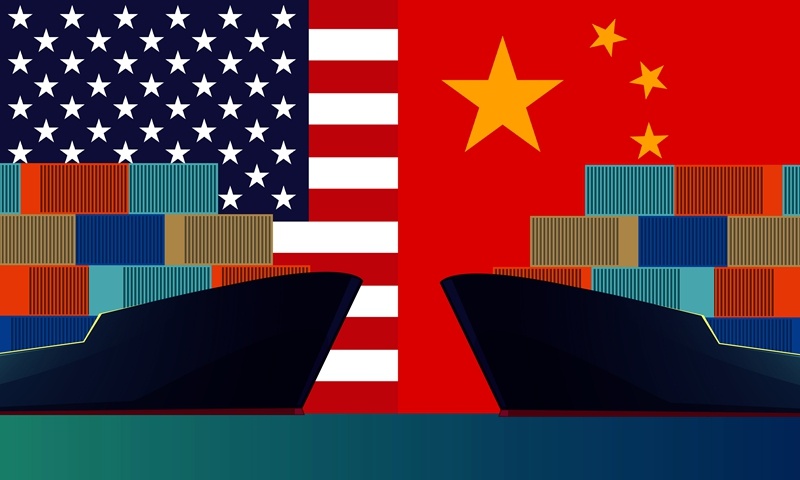
China US Photo: Global Times
Chinese experts said given the close trade and economic partnership between the Group of Seven (G7) members and China, it is difficult for the US to form an anti-China choir at the G7 summit. They also refuted the White House's slander that China poses challenges to the global economy, saying China is the engine of it.
The White House said on Sunday that the US President Joe Biden will hold his first event with other leaders from the G7 nations in a virtual meeting on Friday to discuss the coronavirus pandemic, the world economy and dealing with China, Reuters reported on Monday.
"Biden will also discuss the need to make investments to strengthen our collective competitiveness and the importance of updating global rules to tackle economic challenges such as those posed by China,"said the White House.
Zhang Tengjun, an assistant research fellow at the China Institute of International Studies, told the Global Times on Monday that given the close trade and economic partnership between G7 members and China, it is difficult for the US to form an anti-China choir at the G7 summit.
"China is the engine of the world economy rather than a challenge. These countries want to gain economic benefits from China, while remaining security partners with the US. Therefore, they would rather not pick a side," said Zhang.
Zhang noted that Trump's four-year presidency has depleted the US' leadership role in the G7 and allies' trust in the US has been eroded.
"The tariffs Trump imposed on Europe are still in place and it is the US that challenged the global economy," said Zhang.
From another perspective, the new Biden administration has to take into account domestic industries and employment, so it remains uncertain if Biden would remove the Trump-imposed tariffs. European countries may ask the US to make a compromise, added Zhang.
Trump withdrew the US from the World Health Organization and the Paris climate accord, largely scoffing at multilateral organizations and groups, Reuters reported.
Analysts said "America First" was the core policy of the former US administration. This policy stance intends to create a chaotic international pattern that ignores existing rules and destroys the closely connected international system formed over the past few decades, analysts noted.
Zuo Xiying, an associate professor at the School of International Studies at Renmin University of China, told the Global Times that tackling the so-called China challenge through the alliance network fits Biden's diplomatic framework.
"Biden believes that the US is in a disadvantageous position to deal with China, but it would be easier to perform if it can rope in those Western 'democracies,'" said Zuo.
The US and its Western allies have a consensus that China is a challenge to the West, but they are divergent regarding to what extent China challenges them and how to cope with such"challenges" from China, Zuo noted.
"With the signing of the RCEP and the China-EU BIT, China is attempting to offset pressure from and seek common interests with both Japan and the EU. Therefore, how much they would cooperate with the US to tackle what the US calls "economic challenges" from China remains in doubt," said Zuo.
Reuters said that Friday's meeting will be the first G7 gathering since April 2020. It will be hosted by British Prime Minister Boris Johnson. In addition to the US, the G7 includes France, Japan, Germany, Italy, the UK and Canada.


